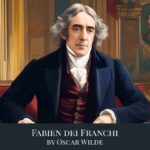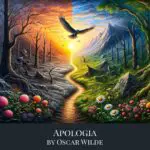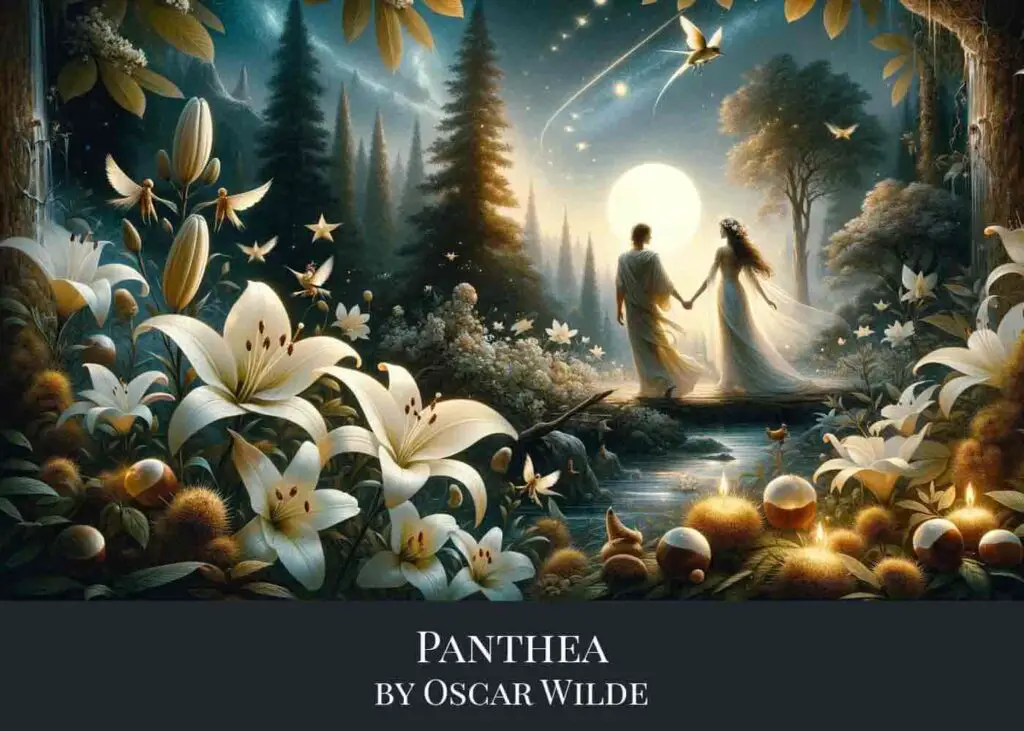
Panthea by Oscar Wilde
“Panthea” is a poem by playwright, poet, and writer Oscar Wilde, rich in vivid imagery and deep philosophical musings. It explores the themes of the transient nature of human life, the pursuit of desire, the beauty of nature, and the idea of an interconnected universe. “Panthea” is part of Oscar Wilde’s poetry collection Poems. For those interested in delving deeper into Wilde’s poetic world, Poems ebook is available at PageVio.
1. The Poem
Nay, let us walk from fire unto fire,
From passionate pain to deadlier delight,—
I am too young to live without desire,
Too young art thou to waste this summer night
Asking those idle questions which of old
Man sought of seer and oracle, and no reply was told.
For, sweet, to feel is better than to know,
And wisdom is a childless heritage,
One pulse of passion—youth’s first fiery glow,—
Are worth the hoarded proverbs of the sage:
Vex not thy soul with dead philosophy,
Have we not lips to kiss with, hearts to love and eyes to see!
Dost thou not hear the murmuring nightingale,
Like water bubbling from a silver jar,
So soft she sings the envious moon is pale,
That high in heaven she is hung so far
She cannot hear that love-enraptured tune,—
Mark how she wreathes each horn with mist, yon late and labouring moon.
White lilies, in whose cups the gold bees dream,
The fallen snow of petals where the breeze
Scatters the chestnut blossom, or the gleam
Of boyish limbs in water,—are not these
Enough for thee, dost thou desire more?
Alas! the Gods will give nought else from their eternal store.
For our high Gods have sick and wearied grown
Of all our endless sins, our vain endeavour
For wasted days of youth to make atone
By pain or prayer or priest, and never, never,
Hearken they now to either good or ill,
But send their rain upon the just and the unjust at will.
They sit at ease, our Gods they sit at ease,
Strewing with leaves of rose their scented wine,
They sleep, they sleep, beneath the rocking trees
Where asphodel and yellow lotus twine,
Mourning the old glad days before they knew
What evil things the heart of man could dream, and dreaming do.
And far beneath the brazen floor they see
Like swarming flies the crowd of little men,
The bustle of small lives, then wearily
Back to their lotus-haunts they turn again
Kissing each others’ mouths, and mix more deep
The poppy-seeded draught which brings soft purple-lidded sleep.
There all day long the golden-vestured sun,
Their torch-bearer, stands with his torch ablaze,
And, when the gaudy web of noon is spun
By its twelve maidens, through the crimson haze
Fresh from Endymion’s arms comes forth the moon,
And the immortal Gods in toils of mortal passions swoon.
There walks Queen Juno through some dewy mead,
Her grand white feet flecked with the saffron dust
Of wind-stirred lilies, while young Ganymede
Leaps in the hot and amber-foaming must,
His curls all tossed, as when the eagle bare
The frightened boy from Ida through the blue Ionian air.
There in the green heart of some garden close
Queen Venus with the shepherd at her side,
Her warm soft body like the briar rose
Which would be white yet blushes at its pride,
Laughs low for love, till jealous Salmacis
Peers through the myrtle-leaves and sighs for pain of lonely bliss.
There never does that dreary north-wind blow
Which leaves our English forests bleak and bare,
Nor ever falls the swift white-feathered snow,
Nor ever doth the red-toothed lightning dare
To wake them in the silver-fretted night
When we lie weeping for some sweet sad sin, some dead delight.
Alas! they know the far Lethæan spring,
The violet-hidden waters well they know,
Where one whose feet with tired wandering
Are faint and broken may take heart and go,
And from those dark depths cool and crystalline
Drink, and draw balm, and sleep for sleepless souls, and anodyne.
But we oppress our natures, God or Fate
Is our enemy, we starve and feed
On vain repentance—O we are born too late!
What balm for us in bruisèd poppy seed
Who crowd into one finite pulse of time
The joy of infinite love and the fierce pain of infinite crime.
O we are wearied of this sense of guilt,
Wearied of pleasure’s paramour despair,
Wearied of every temple we have built,
Wearied of every right, unanswered prayer,
For man is weak; God sleeps: and heaven is high:
One fiery-coloured moment: one great love; and lo! we die.
Ah! but no ferry-man with labouring pole
Nears his black shallop to the flowerless strand,
No little coin of bronze can bring the soul
Over Death’s river to the sunless land,
Victim and wine and vow are all in vain,
The tomb is sealed; the soldiers watch; the dead rise not again.
We are resolved into the supreme air,
We are made one with what we touch and see,
With our heart’s blood each crimson sun is fair,
With our young lives each spring-impassioned tree
Flames into green, the wildest beasts that range
The moor our kinsmen are, all life is one, and all is change.
With beat of systole and of diastole
One grand great life throbs through earth’s giant heart,
And mighty waves of single Being roll
From nerveless germ to man, for we are part
Of every rock and bird and beast and hill,
One with the things that prey on us, and one with what we kill.
From lower cells of waking life we pass
To full perfection; thus the world grows old:
We who are godlike now were once a mass
Of quivering purple flecked with bars of gold,
Unsentient or of joy or misery,
And tossed in terrible tangles of some wild and wind-swept sea.
This hot hard flame with which our bodies burn
Will make some meadow blaze with daffodil,
Ay! and those argent breasts of thine will turn
To water-lilies; the brown fields men till
Will be more fruitful for our love to-night,
Nothing is lost in nature, all things live in Death’s despite.
The boy’s first kiss, the hyacinth’s first bell,
The man’s last passion, and the last red spear
That from the lily leaps, the asphodel
Which will not let its blossoms blow for fear
Of too much beauty, and the timid shame
Of the young bridegroom at his lover’s eyes,—these with the same
One sacrament are consecrate, the earth
Not we alone hath passions hymeneal,
The yellow buttercups that shake for mirth
At daybreak know a pleasure not less real
Than we do, when in some fresh-blossoming wood,
We draw the spring into our hearts, and feel that life is good.
So when men bury us beneath the yew
Thy crimson-stainèd mouth a rose will be,
And thy soft eyes lush bluebells dimmed with dew,
And when the white narcissus wantonly
Kisses the wind its playmate some faint joy
Will thrill our dust, and we will be again fond maid and boy.
And thus without life’s conscious torturing pain
In some sweet flower we will feel the sun,
And from the linnet’s throat will sing again,
And as two gorgeous-mailèd snakes will run
Over our graves, or as two tigers creep
Through the hot jungle where the yellow-eyed huge lions sleep
And give them battle! How my heart leaps up
To think of that grand living after death
In beast and bird and flower, when this cup,
Being filled too full of spirit, bursts for breath,
And with the pale leaves of some autumn day
The soul earth’s earliest conqueror becomes earth’s last great prey.
O think of it! We shall inform ourselves
Into all sensuous life, the goat-foot Faun,
The Centaur, or the merry bright-eyed Elves
That leave their dancing rings to spite the dawn
Upon the meadows, shall not be more near
Than you and I to nature’s mysteries, for we shall hear
The thrush’s heart beat, and the daisies grow,
And the wan snowdrop sighing for the sun
On sunless days in winter, we shall know
By whom the silver gossamer is spun,
Who paints the diapered fritillaries,
On what wide wings from shivering pine to pine the eagle flies.
Ay! had we never loved at all, who knows
If yonder daffodil had lured the bee
Into its gilded womb, or any rose
Had hung with crimson lamps its little tree!
Methinks no leaf would ever bud in spring,
But for the lovers’ lips that kiss, the poets’ lips that sing.
Is the light vanished from our golden sun,
Or is this dædal-fashioned earth less fair,
That we are nature’s heritors, and one
With every pulse of life that beats the air?
Rather new suns across the sky shall pass,
New splendour come unto the flower, new glory to the grass.
And we two lovers shall not sit afar,
Critics of nature, but the joyous sea
Shall be our raiment, and the bearded star
Shoot arrows at our pleasure! We shall be
Part of the mighty universal whole,
And through all æons mix and mingle with the Kosmic Soul!
We shall be notes in that great Symphony
Whose cadence circles through the rhythmic spheres,
And all the live World’s throbbing heart shall be
One with our heart; the stealthy creeping years
Have lost their terrors now, we shall not die,
The Universe itself shall be our Immortality.
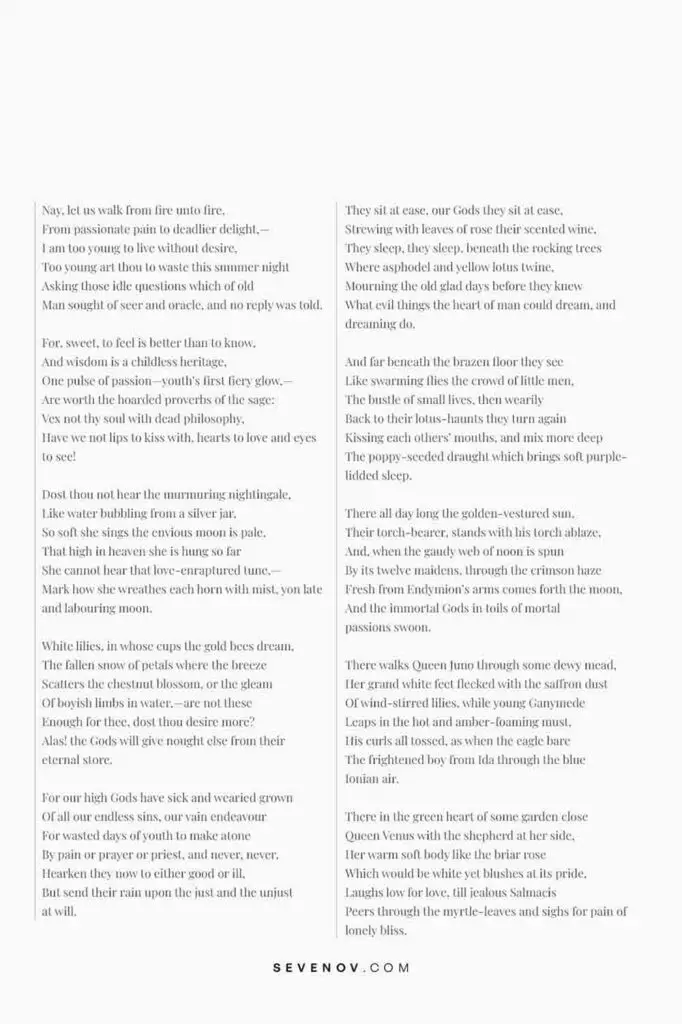
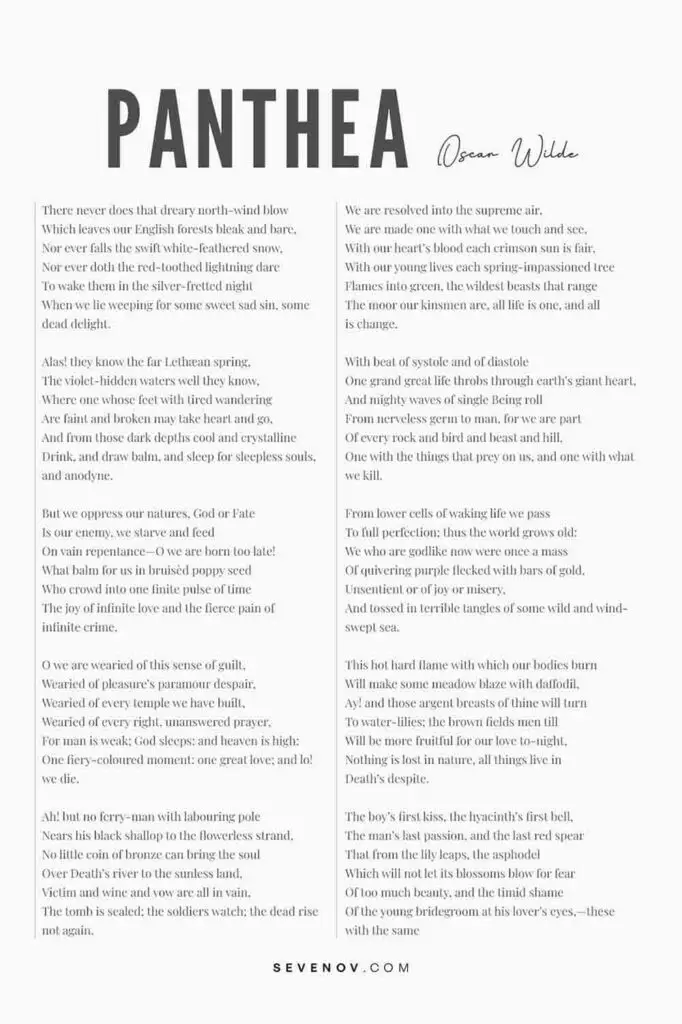
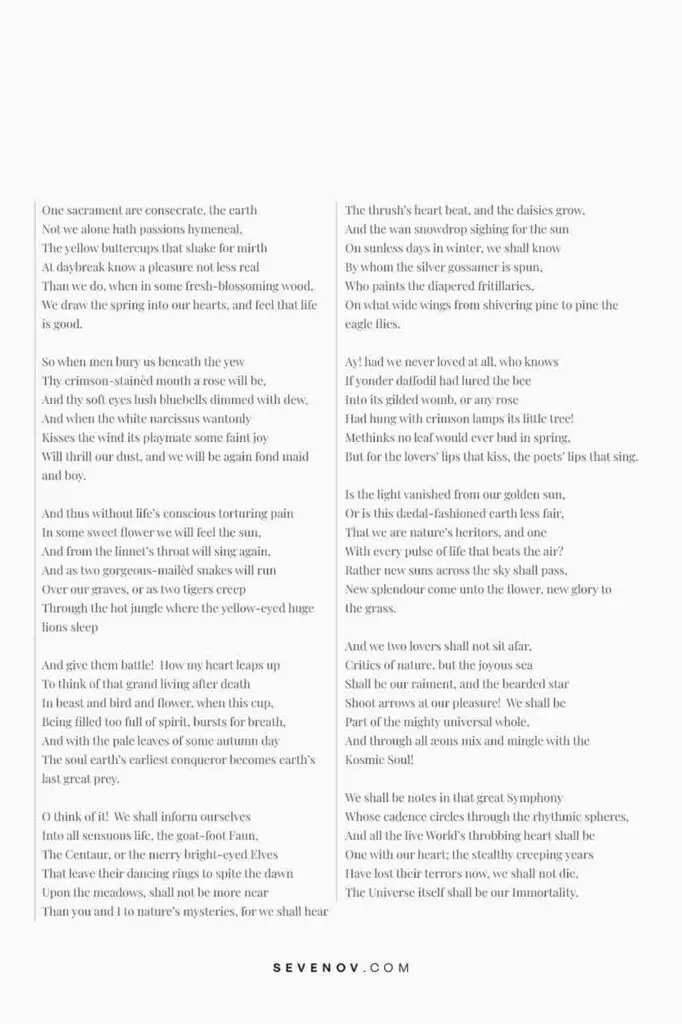
Size: 8″ x 12″ (2:3 ratio)
Format: PDF
Copyright information: For personal use only
Note: Actual poster background color is white. For the sample poster, the background is made gray for illustration purpose.
2. Panthea Analysis
“Panthea“, rich in imagery and emotion, conveys a deep exploration of life, desire, nature, and the human condition. Here’s an analysis of its themes and content:
Embracing Passion and Desire
The poem opens with an exhortation to move from “fire unto fire”, suggesting a journey through intense experiences and emotions. The speaker claims to be too young to live without desire, emphasizing the importance of passion in life. This sets the tone for a celebration of youthful vigor and the pursuit of pleasure.
Valuing Experience Over Knowledge
The speaker contrasts feeling with knowing, suggesting that direct experience and passion are more valuable than wisdom or philosophical inquiry. This reflects a romantic idealization of youth and its fiery emotions, as opposed to the cold, detached wisdom of age.
Nature’s Beauty and Transience
The poem is replete with natural imagery – nightingales, lilies, chestnut blossoms, symbolizing the transient but intense beauty of the world. These images evoke the fleeting nature of life and beauty, suggesting that one should savor them fully.
Disillusionment with Gods and Destiny
The speaker expresses a sense of disillusionment with traditional religious beliefs and the gods, who seem indifferent to human struggles and joys. This reflects a human-centric worldview, where deities are distant and uninvolved.
Cycle of Life and Rebirth
There’s a strong theme of the interconnectedness of all life and the cycle of birth, death, and rebirth. The poem suggests that everything in nature, including humans, is part of a larger, eternal cycle. This is depicted through the metamorphosis of human passions into elements of nature, like flowers and animals.
Celebration of Sensuality and Love
The poem vividly celebrates sensuality, love, and the physical connection to nature. It implies that love and beauty are essential components of the human experience and are intricately connected to the natural world.
Transcendence and Immortality
In the concluding stanzas, the poem speaks to a form of immortality through unity with the universe. The speaker imagines a post-death existence where they become one with nature, transcending the limitations of their mortal life.
Rejection of Conventional Morality
Throughout the poem, there is a subtle rejection of traditional moral and social conventions, favoring a more liberated, passionate existence that is in harmony with nature and primal desires.
In summary, “Panthea” is a lyrical meditation on youth, desire, the beauty of nature, the limitations of human understanding, and the transcendent nature of life and death. It embraces a philosophy that values passion, sensuality, and a deep connection with the natural world, challenging conventional views of wisdom, morality, and the divine.
3. Conclusion
If you find “Panthea” captivating, you may also enjoy delving into other poems by Oscar Wilde.


